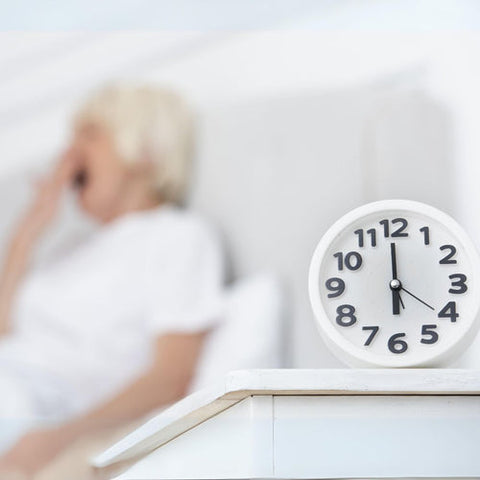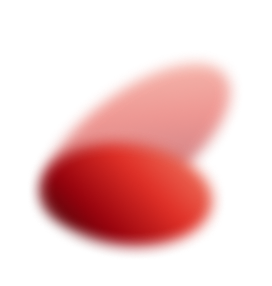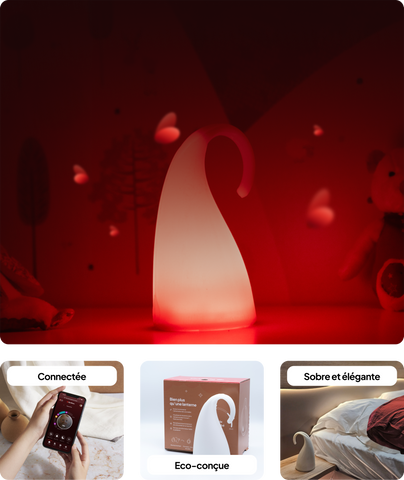What is circadian rhythm?
Our body has what is called an internal clock . This governs several of our biological processes such as the circadian rhythm which allows us to live on a 24-hour cycle. The circadian rhythm regulates some of our biological processes: the sleep/wake cycle, mood, cognitive abilities, body temperature and hormone production. It is therefore thanks to the circadian clock that melatonin (the night hormone) starts at the end of the day, that your body temperature is low in the morning or that your memory is consolidated during your (nocturnal) sleep. And yes, your body does all these things without you even realizing it.
The circadian rhythm is mainly controlled by the suprachiasmatic nucleus (an area of the brain), located in the hypothalamus. Thanks to the influence of external factors, the internal clock is constantly resynchronized on a 24-hour cycle. Without it, we would all have different rhythms and living in society would be very complex. One of the external factors that influences our biological clock is light. The light signals received by the eyes influence the synchronization of the circadian rhythm.
The impact of light on our circadian rhythms
Light plays a central role in the synchronization of biological rhythms , serving as a signal to adjust biological clocks.
 We often hear that blue light is bad for us, especially in the evening. But it is very important to expose yourself to natural light in the morning, which is enriched with blue light because it helps stimulate alertness and blocks the secretion of melatonin. In fact, morning light is a bit like a messenger for your brain telling it "it's daytime, it's time to wake up". This is why it is said that blue light is bad before sleep, because it prevents your brain from secreting melatonin properly.
We often hear that blue light is bad for us, especially in the evening. But it is very important to expose yourself to natural light in the morning, which is enriched with blue light because it helps stimulate alertness and blocks the secretion of melatonin. In fact, morning light is a bit like a messenger for your brain telling it "it's daytime, it's time to wake up". This is why it is said that blue light is bad before sleep, because it prevents your brain from secreting melatonin properly.
Unlike morning light, evening light is red and orange in color, which will facilitate the secretion of melatonin , and therefore logically sleep .
If some days you are in great shape, super energetic and other days you count sheep until you fall asleep, it is because your clock is either well regulated or on the contrary out of order.
If your biological clock is out of sync, it can have many impacts such as difficulty concentrating, mood swings or even sleep disorders. This is why it is important to know your biological rhythm and respect it. This will allow you to align your lifestyle with your biological clock. In this way, you will be able to improve your physical health, but also your well-being.
A disrupted biological clock can lead to circadian rhythm disorder.
What is a circadian rhythm disorder?
Circadian rhythm disorders occur when the internal sleep/wake cycle is not aligned with the light cycle (day and night). There are several things that can cause circadian rhythm disorders and these disorders can have many consequences on sleep.
Causes of circadian rhythm disorder:
- Night work and irregular hours: Exposure to light at night disrupts the internal clock. The body is programmed to be awake during the day and to sleep at night. So when an individual is exposed to light at night, their internal clock is disrupted and this can therefore cause circadian rhythm disorders.
- Lack of exposure to natural light : Insufficient exposure to daylight and too much exposure to artificial light can desynchronize the biological clock. It is through exposure to light during the day and exposure to darkness at night that your biological clock is able to synchronize over a 24-hour period.
- Jet lag : Traveling across different time zones causes a temporary desynchronization between biological rhythm and environment.
- Irregular meal times : Eating meals at unusual times will disrupt biological rhythms.
Consequences on sleep:
- Phase advance: individuals who suffer from phase advance fall asleep very early (around 8 p.m.) and also get up very early in the morning (around 4 a.m./5 a.m.). Phase advance is often observed in older people.
- Delayed sleep phase : Unlike individuals with advanced sleep phase, individuals with delayed sleep phase go to bed very late and also get up very late. This disorder often appears in adolescents and young adults.
- Free-running: Usually affecting people who are visually impaired, blind, poorly treated or misdiagnosed, this disorder manifests itself through irregular and unpredictable sleep. It results in a completely disrupted internal biological clock.
Circadian rhythm disorders often result from poor light exposure, but any cause of circadian rhythm disorders can impact your sleep. These disruptions and their consequences can impact your overall health, so it is important to treat circadian rhythm disorders.
How to reset the circadian rhythm?
The goal of resetting the circadian rhythm is to realign the internal clock with the natural day-night cycle.
To do this, you can implement several practices:
- Have regular sleep schedules : going to bed and getting up at the same time every day will allow your body to find a rhythm and regulate its sleep.
- Expose yourself to natural light : In the morning, it is important to expose yourself to natural light and in the evening to darkness. If you need light at night, the Bye Blues lamp is perfect to illuminate you. In this way, you help regulate the production of melatonin, indicating to your body that it is either time to go to sleep or time to wake up.
- Limit exposure to blue light in the evening : it blocks the secretion of melatonin and can therefore delay falling asleep.
Do not hesitate to consult your doctor so that he can analyze your situation and refer you to sleep professionals if necessary.
Circadian rhythm is of paramount importance for your body and therefore for your health. The regulation of our daily lives is not the result of chance, but rather the regulation of our circadian rhythm . Disruptions such as night work, jet lag or poor exposure to light can affect your circadian rhythm and therefore your sleep and general well-being . But as you will have understood, there are solutions to update your internal clock such as exposure to natural light in the morning and darkness in the evening. By understanding and respecting your biological clock, you can improve your sleep as well as your physical and mental well-being. It is therefore imperative to treat circadian rhythm disorders by consulting sleep professionals if necessary in order to find solutions adapted to each individual.




